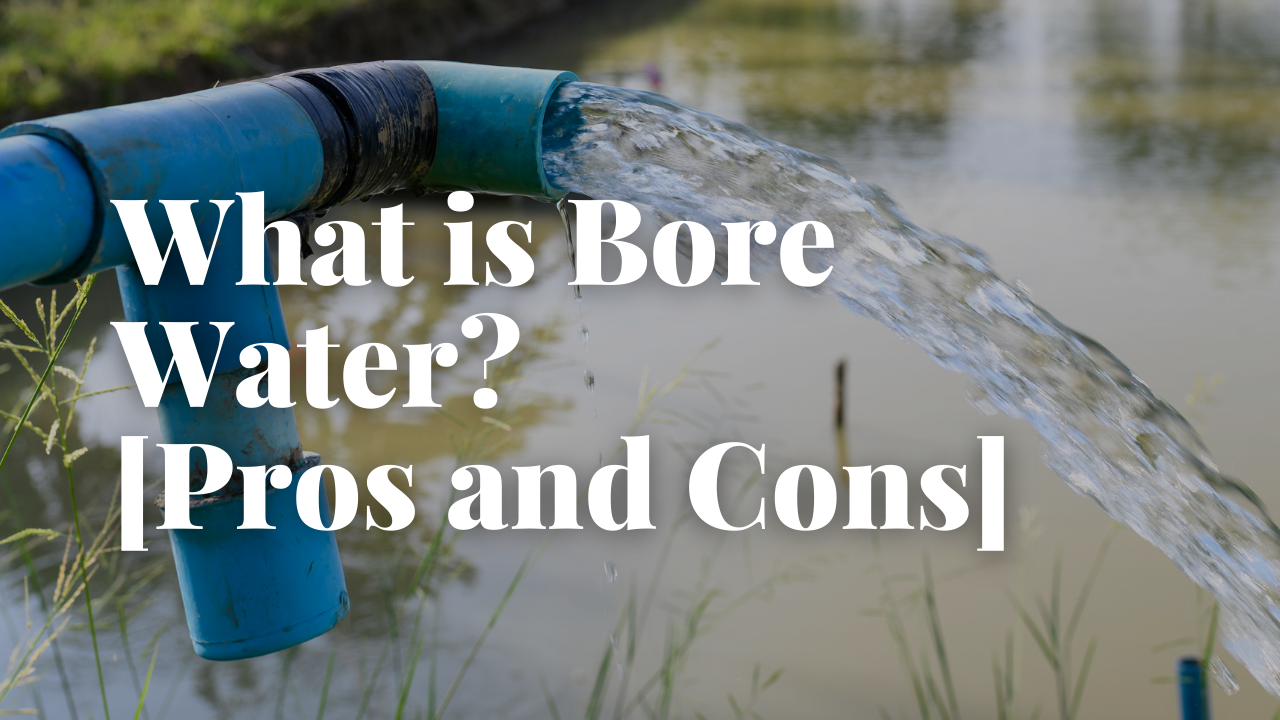If you’re purchasing a home with bore water, or you’re curious about bore water and its benefits, this list of Pros and Cons of Borewater will give you some insight into what you may expect when living with groundwater.
Nobody likes to get sick from bacteria, viruses, heavy metals, or pesticides, but these are still real risks with bore water.
What is Bore Water?
Bore water is simply another term for groundwater. Groundwater is extracted from the ground using a pump and commonly used for drinking, cooking and bathing.

Pros of Bore Water
- Bore water contains higher levels of minerals compared to city treated water. It’s as fresh as the water gets coming directly beneath the earth without a single chemical addition. Bore water is chemical-free and high in those healthy minerals.
- No more water bills. Because you’re running on the water drilled from your own land, the only expense you’ll have is maintaining your pump and water filter system.
- Groundwater is generally spared from the contamination that comes with natural disasters such as floods, fires, and cycles; you name it. City water is usually the first to be contaminated but what’s underground is pretty safe.
Cons of Bore Water
- Borewater uses electricity. No electricity, no water. Bore water uses a pump to pull the water from the aquifer up to the tap, so it’s helpful to have a backup power source such as a solar battery or solar panels.
- Bore water isn’t clean. Contaminant risks in bore water include nitrates from local agricultural practices, stormwater runoff, pesticides, run-off from sewage systems, nearby farms, and local factory pollution may all contribute to high levels of contaminants in your groundwater.
- Bore water is the homeowner's responsibility, and it’s essential to use a water filter to purify the water coming into your home before consuming it.

Can You Drink Bore Water?
It is not recommended to drink bore water without first testing the water quality to check for contaminants.
If the water comes from just beneath the surface, it could be contaminated by bacteria, viruses, or chemicals depending on activities that are performed on the surface.
Groundwater that comes from deeper underground could potentially have a greater risk of heavy metals and other chemicals depending on how the earth has been treated.
It’s essential to have bore water tested before consuming.

Do You Need a Bore Water Filter?
The Filteroo Collection is an excellent solution for bore water, and all you need to do is fill the top container with your bore water and wait for it to trickle down through the cartridges for a clean beverage at the bottom.
Contaminants Removed By The Filteroo Steel and Filteroo Blue
The Filteroo collection treats the following contaminants:
- bugs,
- bacteria,
- viruses,
- chlorine,
- chlorine by-products,
- fluoride
- herbicides,
- Pesticides
- VOCs
- heavy metals.
Take a look at our gravity benchtop water filters collection and contact us if you have any questions.




